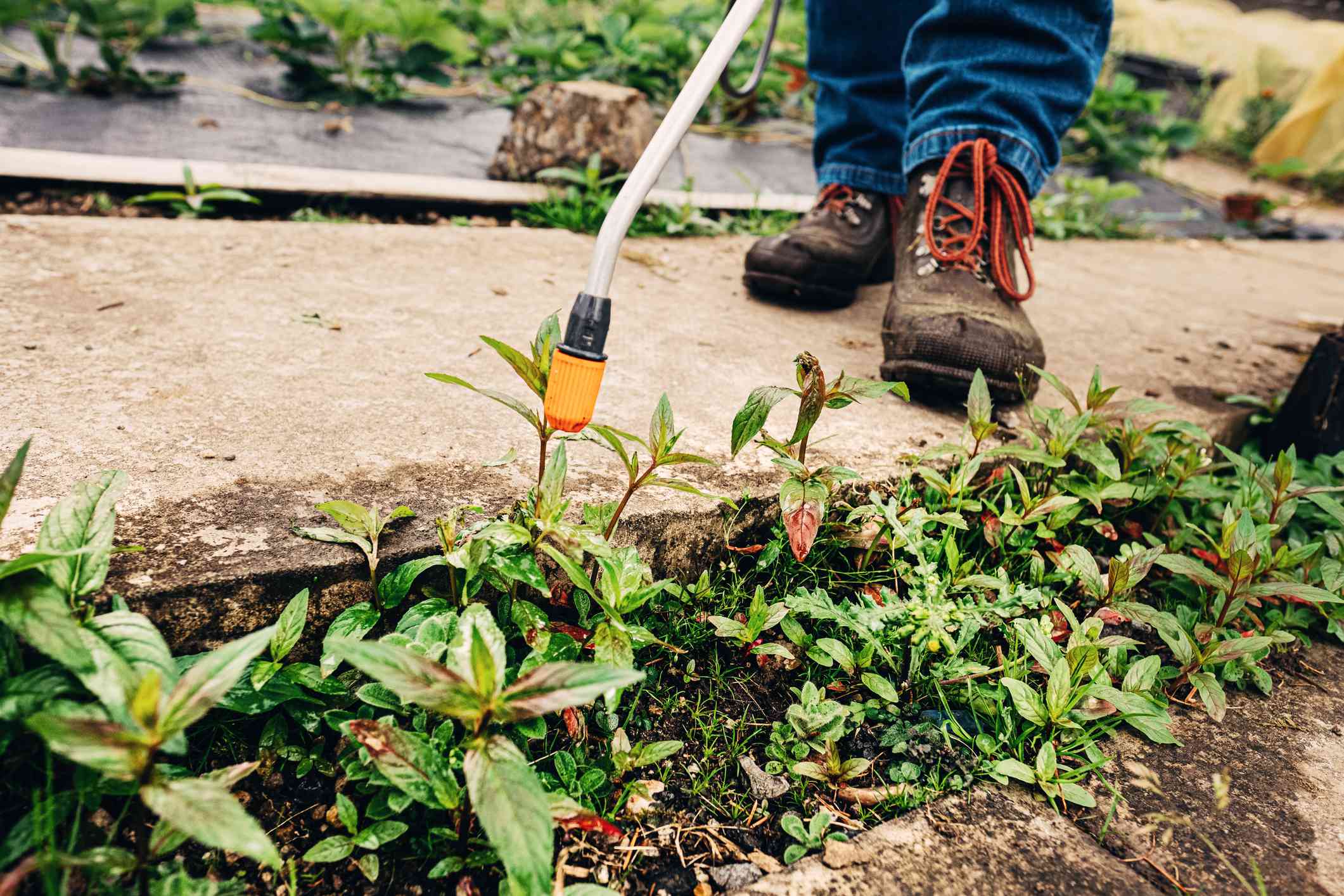:max_bytes(150000):strip_icc():format(jpeg)/GettyImages-1266925593-d27c131de72c44b6ab00878f0e32f71e.jpg)
Key points
- Hot water is an effective way to kill weed without using chemicals.
- It is best used for annual weed, in cold weather, and away from the plants you don’t want to kill.
- Other effective methods include manual withdrawal and using vinegar.
The joy is to watch your plants to progress, but that happiness can quickly turn to panic when you notice the weeds in the garden. Weeds are mostly unwanted plants that find their way into the soil, and some can be invasive or harm to their well-maintained plants or lawn. The key to releasing these unwanted conquerors does not have to be sharp chemical herbicide.
It can be easy as boiling water, but how does it work? We requested gardeners experts how this simple trick can be a good weed killer – and how to use it safely with your plants.
Meet the expert
- Anna Hackman is a farmer and a general member of naked botanical.
- Alex Watson is a gardener and founder of the garden of guys.
How to use warm water to kill weeds
Using boiling water to remove weed is quite simple.
- Charge the tea kettle (with a non-metal handle) with some water.
- Put it on the stove and warm yourself boiling, then bring it outside into your garden.
- Pour it on the leaves and soak in the roots of unwanted weeds.
Want more darts tips? Sign up for our free kindergartens Bulletin for our best tips for breeding, troubleshooting and more!
Why do water cooking works on weed kill
Hot water will put a plant in thermal shock. Changing the speed of temperature damage weed cells and causes the plant to dry quickly.
“So you will see a binding, then finally the plant dying,” says Alex Watson, a gardener and founder of the garden. “It does a job if you are trying to move away from using sharp chemicals.”
Watson suggests the use of this method during cold weather to improve the effect of changing the temperature on the weed.
Both experts recommend that this method is most used with weed in greasy areas, such as sidewalks, access roads and roads.
“We discover that it is quite effective on hard surfaces and narrow cracks, because the roots are usually quite shallow,” says Watson.
For sand sand, experts advise that hot water method may need to be used several times before the results can be seen.
Why the boiling water may not work on some weeds
The hot temperature can be sufficient to kill certain types of weeds, especially annual plants with roots that are close to the top of the soil, not deep into the ground.
Annual weed, such as chickens, the entire growth cycle in one growing season, but many years, such as butts, can continue to grow more than two years. Therefore, many years old have deeper roots, such as long tacoys of dandelions.
“If someone wants to use boiling water, they just have to be careful and ensure that it gets it in the plant when it is really hot,” says Ana Hackman, Farmer and a member of the naked botanical. “But for any year-olds like dandelions, he won’t kill him, because he’ll just kill the upper part of it.”
“Everything that has a tap root, which tends to be a perennial or perennial that has a lot of roots that goes down into the ground, the warm water cannot reach it,” continues. “While descending from that soil, the water is cool.”
What to look after the use of water to kill weeds
When you use this method of killing weeds, you will need to make sure that weed is not directly next to one of the plants in your gardens – those you planted and they should have been there. This is because hot water is not selective when it kills plants and give them these goals.
“I’m just worried, if you get in your superbundant garden and kill weed by your vegetables, you will kill vegetables,” Hackman says.
It also notes that the approach should not be used “in lawns, not in raised beds or vegetables, because I would just fear you to kill a plant.”
Other dance ways to kill weed in the garden
And Hackman and Watson recommend withdrawal weeds from the land with hands or garden tools. Watson advises using a garden hoe that will cut off the top of weed above the ground.
“They start, then break down and put nutrients into the garden,” he says. “Everyone is very fast, and within a few days, you wouldn’t see them.”
If you deal with a dandelion or other weed with Taprot, Watson suggests using vinegar to dehydrate the plant.
“If you use white vinegar from the closet, which should start to break the plant, then lower it in the Tachot,” he says.
